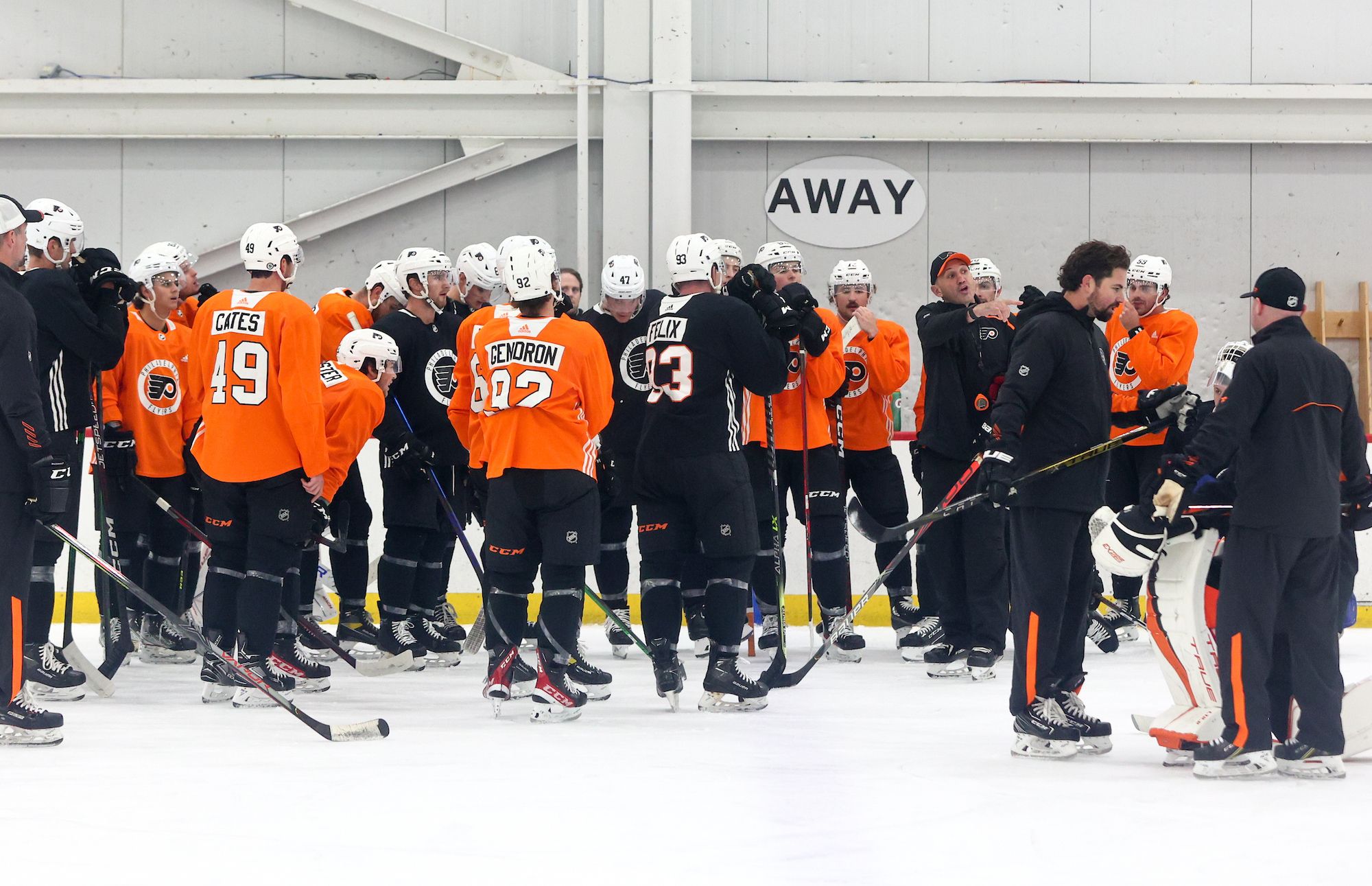“The contract with Chris Pronger that we registered with the National Hockey League is one we certainly feel was a compliant contract,” Flyers president Peter Luukko said Tuesday afternoon.
“The Pronger contract is structured differently than the Kovalchuk contract. And it’s been in effect well over a year.”
That above quote comes from a Tim Panaccio story over at CSNPhilly.com this afternoon. Peter Luukko is responding to arbitrator Richard Bloch, who implied in his ruling in the Ilya Kovalchuk matter that Pronger’s contract is questionable and could still be thrown out by the NHL.
Luukko, apparently, disagrees, and he tells Panaccio that the organization has considered the matter closed for some time. The crux of Panaccio’s article is that, should the NHL challenge the Pronger deal, they’ll face a tough battle from the Flyers in doing so.
Fair enough. That’s expected — of course the Flyers would defend their contract in every way they possibly can. But for Luukko to say that “it’s been in effect for well over a year” and that it’s “structured differently” than Kovalchuk’s is kind of misleading.
Yes, the contract has been registered with the NHL for over a year, but the contract didn’t actually take effect until July 1, 2010. The Flyers have yet to play hockey since the contract has taken effect, so Pronger hasn’t made any of that money yet. To say it’s been “in effect for well over a year” just isn’t correct.
As for the structure of the two deals, let’s look at them both. First, the Kovalchuk deal, then the Pronger deal.
| SEASON | SALARY | CAP HIT |
| 2010-2011 | 6,000,000 | 6,000,000 |
| 2011-2012 | 6,000,000 | 6,000,000 |
| 2012-2013 | 11,500,000 | 6,000,000 |
| 2013-2014 | 11,500,000 | 6,000,000 |
| 2014-2015 | 11,500,000 | 6,000,000 |
| 2015-2016 | 11,500,000 | 6,000,000 |
| 2016-2017 | 11,500,000 | 6,000,000 |
| 2017-2018 | 10,500,000 | 6,000,000 |
| 2018-2019 | 8,500,000 | 6,000,000 |
| 2019-2020 | 8,500,000 | 6,000,000 |
| 2020-2021 | 6,500,000 | 6,000,000 |
| 2021-2022 | 3,500,000 | 6,000,000 |
| 2022-2023 | 750,000 | 6,000,000 |
| 2023-2024 | 550,000 | 6,000,000 |
| 2024-2025 | 550,000 | 6,000,000 |
| 2025-2026 | 550,000 | 6,000,000 |
| 2026-2027 | 550,000 | 6,000,000 |
| SEASON | SALARY | CAP HIT |
| 2010-2011 | 7,600,000 | 4,921,429 |
| 2011-2012 | 7,600,000 | 4,921,429 |
| 2012-2013 | 7,200,000 | 4,921,429 |
| 2013-2014 | 7,000,000 | 4,921,429 |
| 2014-2015 | 4,000,000 | 4,921,429 |
| 2015-2016 | 525,000 | 4,921,429 |
| 2016-2017 | 525,000 | 4,921,429 |
Sure, the Kovalchuk deal is a lot more extreme in just about every way. There are more diveback years at the end of the deal, there’s more money and there are more years in total. But to say that they’re structured differently?
That’s just not true at all.
The structure is almost identical, save the fact that Kovalchuk’s had the two years at the start of the contract where he made less than in years three through 11. Perhaps Luukko is talking about the 35-plus nature of Pronger’s deal as opposed to Kovalchuk’s, but that doesn’t have much to do with the “structure” of the thing. More importantly, the reasoning behind creating a contract with this structure is exactly the same in both cases.
I’m all for the Flyers fighting back against an NHL challenge of the Pronger deal — although I’d probably rather them just go along with it and sign Pronger to a new deal that won’t hurt them years after he’s retired — but if Luukko’s argument is that the deal is completely different than Kovalchuk’s, the Flyers just simply will not win.









